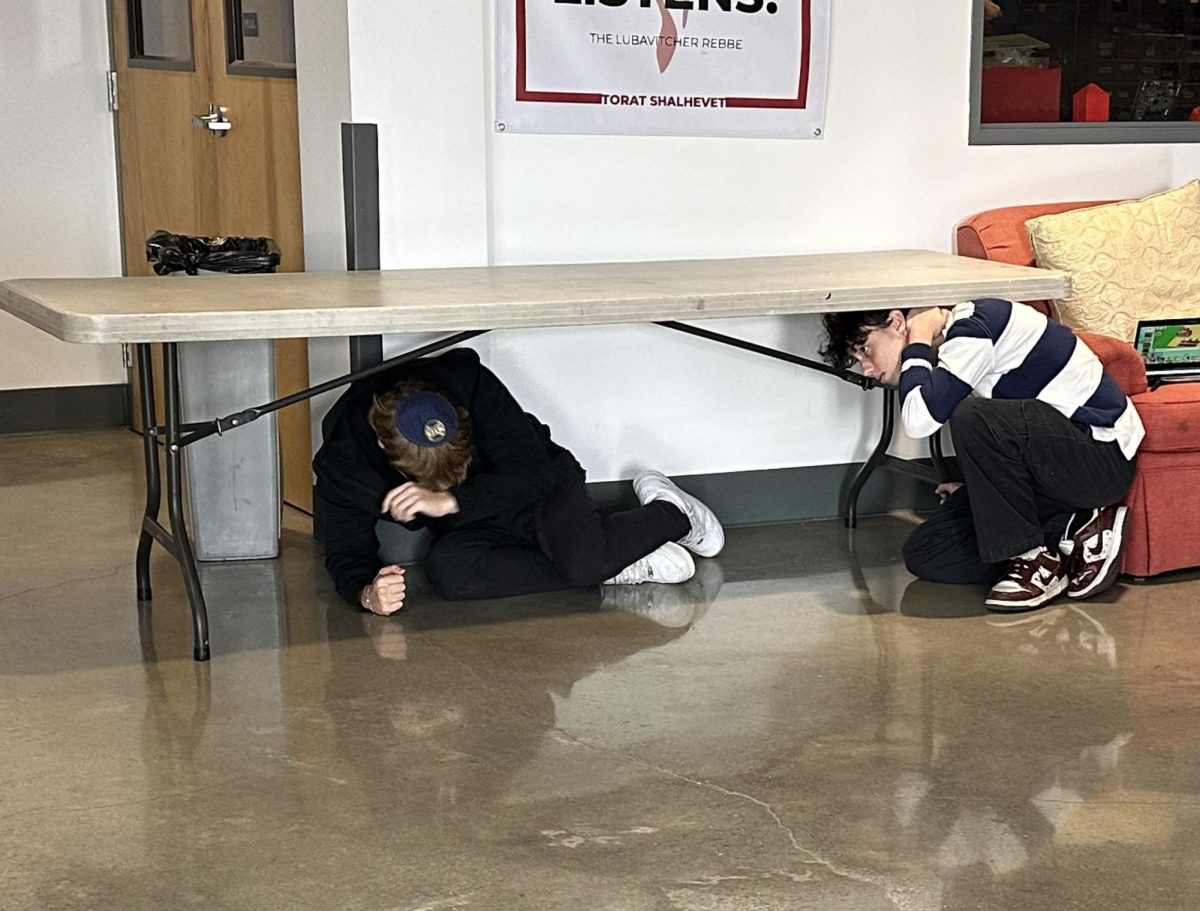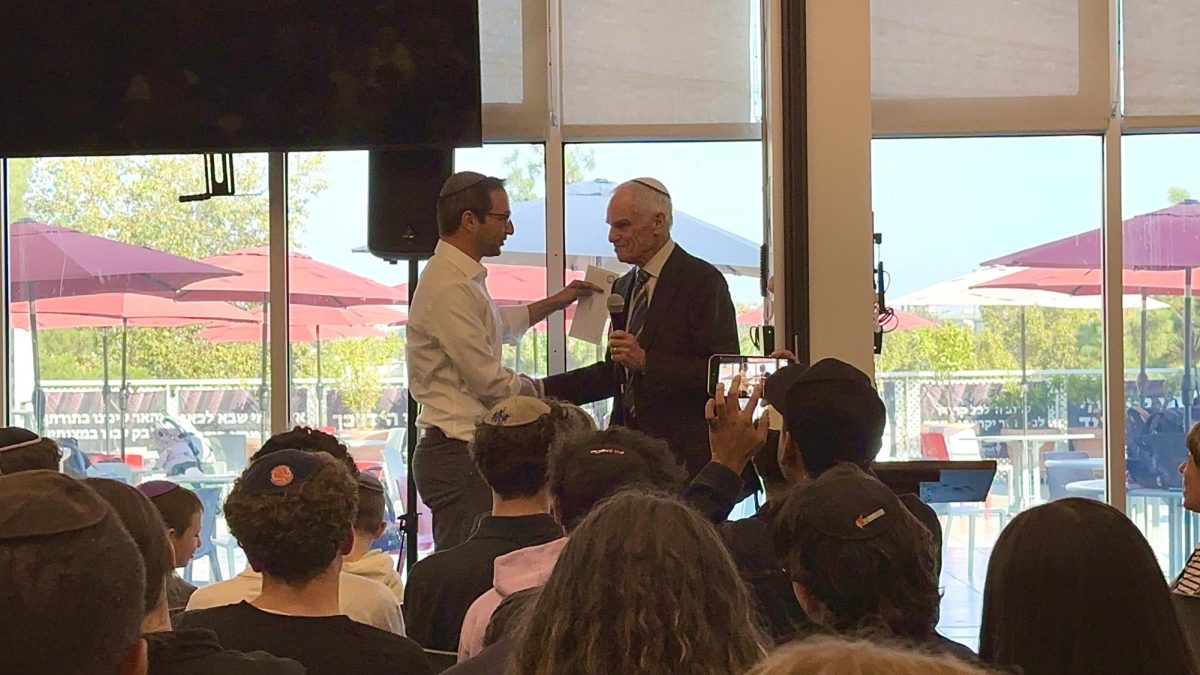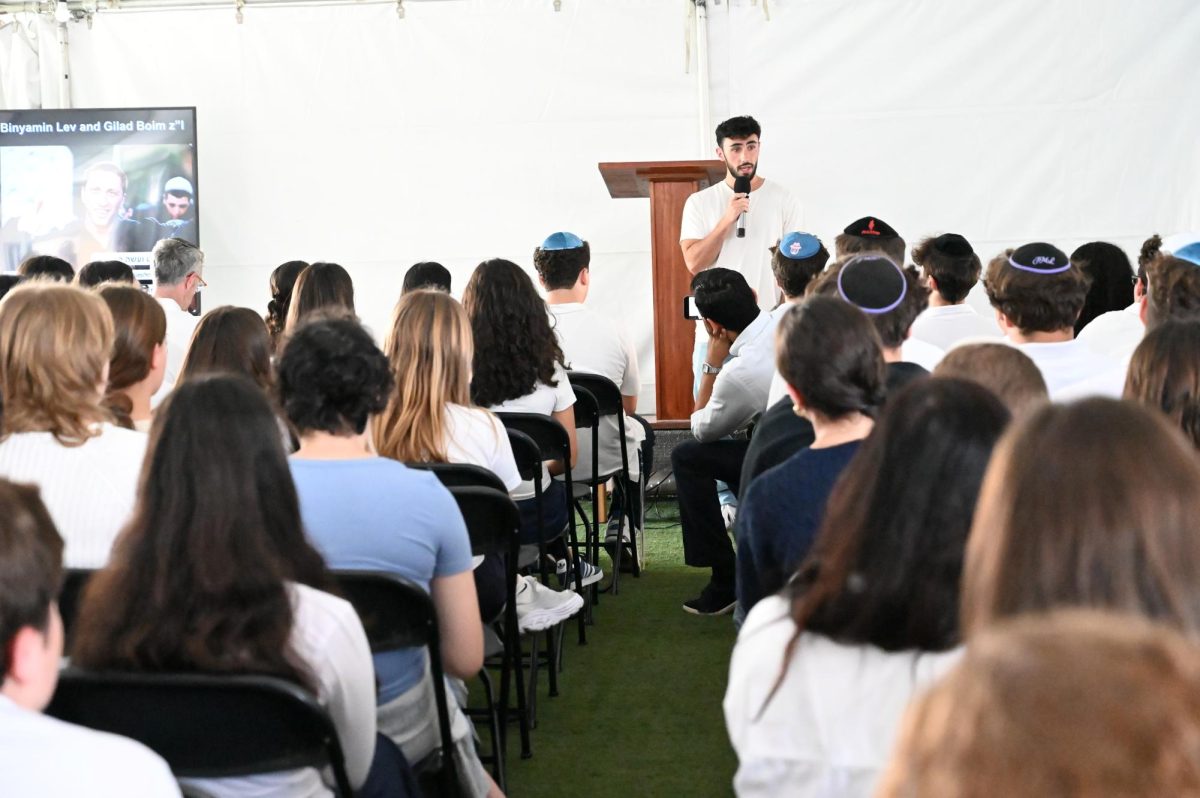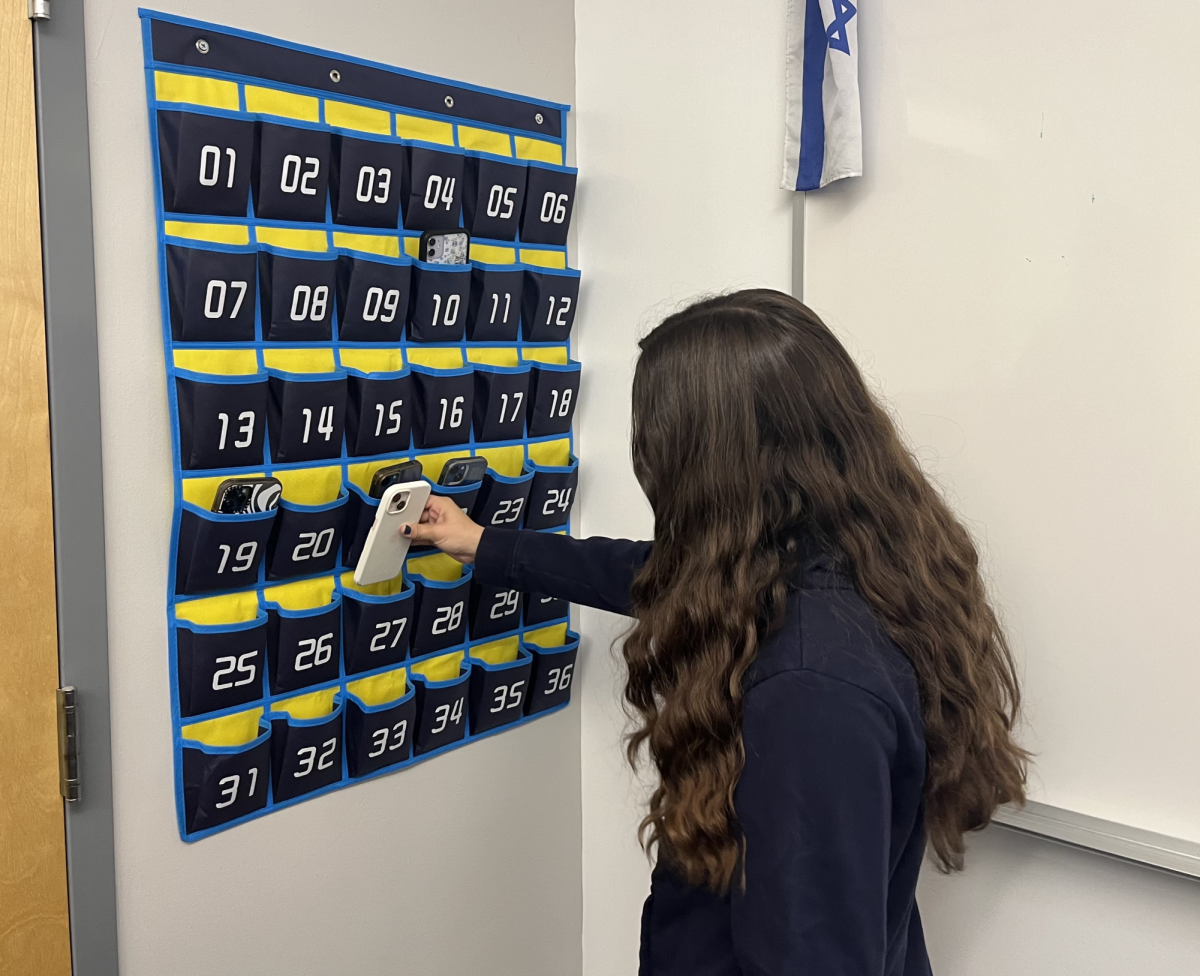Shalhevet will have chickens on campus next semester.
As part of his senior project, senior Adam Kellner plans to construct a coop in the vegetable garden behind the school right next to the classrooms of science teachers Dr. Jay Smallwood and Mr. Buckley, and will hopefully sell the chickens’ eggs as a fundraiser for both the coop and the senior Poland-Israel trip.
Head of School Rabbi Ari Segal likes the idea – he approved a startup price that the school will fund – and Adam’s senior project advisor, Judaic Studies teacher Mr. Jason Feld, is all for it.
“I really hope it happens — I think what Shalhevet is missing right now are chickens,” said Mr. Feld, who is Adam’s senior project advisor and subscribes to a weekly magazine about chickens.
Adam and Mr. Feld have already started clearing some space in the cube of dirt next to the garden. They drew up a budget, which they submitted to Rabbi Segal on Oct. 2 and which they hope will be approved.
Apart from the startup price of $400 for the coop and $38 per hen – Adam plans to start with three or four – food would cost between $810 and $1080 a year, and someone would have to make repairs and keep it clean. Mr. Feld said chicken droppings could used as compost for the vegetable garden.
The plan would be to brood the chickens for a couple of months in the house of one of the people involved in the project – it’s not certain who yet – in order to take care of them in a more sheltered environment before moving them to the coop at school. Although he wants to start with only about three or four hens, Adam hopes to buy a type of coop that can be expanded for more hens.
“We hope that the money will come from the school budget,” said Mr. Feld. But he thinks that if they can sell the eggs, the coop will eventually pay for itself.
Alumni could make a donation and name a chicken, and the eggs could be sold at school to raise funds for the Poland-Israel trip or Tomchei Shabbat, Adam said.
But selling the eggs might not help much. Hens don’t start laying eggs until five to seven months of age, and then lay one egg a day for about a year and a half until production begins to decrease. If each chicken laid an egg a day for one month, that would amount to 60 eggs, or 5 dozen. Sold for roughly $2 per dozen, that would bring in just $10 per month.
Beyond the financial benefit, however, the coop presents a learning opportunity from students.
“I love the overall idea,” said Head of School Rabbi Segal, who explained that there are Jewish laws on how to treat farm animals and take an egg from a nest. “It’s a great lesson is sustainable living and entrepreneurial spirit… It gives the students an opportunity not only to learn the Halacha but to practice them as well.”
But not everyone is as enthusistic.
“I don’t think we should have chickens at Shalhevet,” said freshman Clare Hartman. “The noise will be very hard to bear and it will distract many students.”
“School’s chaotic enough,” said sophomore Frances Shor. “We come to learn, not to have a petting zoo.”
Facilities Coordinator Eli Schiff said he supported the idea and expects the students organizing the coop to be in charge of maintenance. But he also said the school could help if needed.
“I don’t expect the maintenance crew to be involved much, but if the students do need help, I’m sure that Jose or Reuven will be able to lend a hand from time to time,” said Mr. Schiff.
Custodian Jose Flores supported the plan and said he took care of chickens in El Savador.
“It’s a good idea if they take good care of them,” custodian Jose Flores said.






